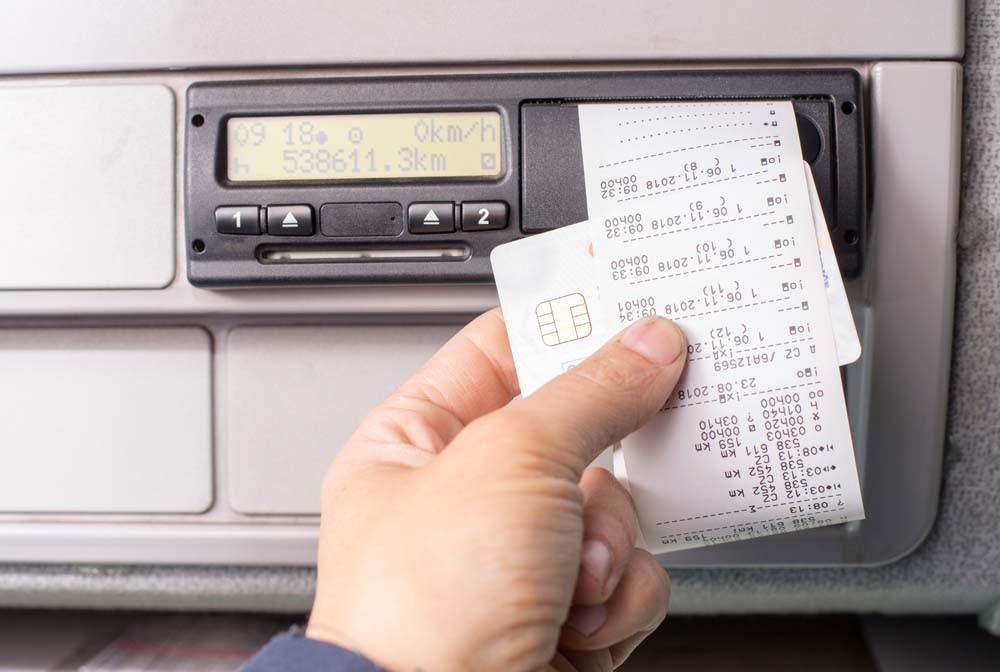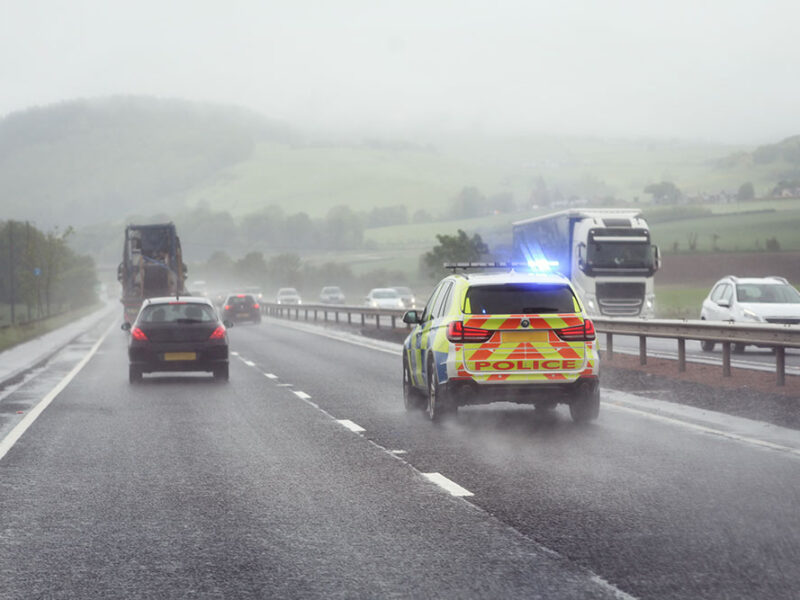Ask many goods vehicle operators what is meant by "running on domestic rules" and they will assume that you are referring to the exceptions set out in the EU drivers' hours and record keeping rules (especially Article 13 of Regulation (EC) 561/2006). These cover operations such as:
- The use of vehicles or combinations of vehicles with a maximum permissible mass not exceeding 7.5 tonnes used for carrying materials, equipment or machinery for the driver's use in the course of their work within a 50 kilometre radius from the base of the undertaking, and on condition that driving the vehicle does not constitute the driver's main occupation (the so-called "scaffolder's exception"), or using vehicles for utility maintenance work.
In fact, the reach of the domestic rules extends far beyond the list of exceptions set out in Article 13. The starting point for the organisation of the work for any operator who carries out a mixture of domestic and EU operations is to ensure absolute clarity as to which drivers are doing which type of work every day, and to have records confirming the daily positions that are immediately available to those managing the transport operations.
The rules that apply to the work that a driver does and the records (if any) that are required to be kept in relation to each duty should all be managed in a way that enables an operator to track and control what is happening effectively.
The Rules
The GB domestic hours rules apply to all goods vehicles (i.e. motor vehicles constructed or adapted to carry goods other than the effects of passengers (their personal possessions)) not exceeding 3.5 tones driven on public roads where they are driven in the course of employment or in connection with a trade or business, as well as those vehicles exceeding 3.5 tonnes in defined circumstances falling outside of the EU regulations (e.g. the scaffolder, above where the Article 13 derogation applies).
As one would expect, the armed forces, fire brigade and police are exempt, as is private use and drivers who always drive off the public road system.
So what are the basic rules, and when do they apply?
Daily Driving and Duty Limits
In any working day, the maximum amount of permitted driving is 10 hours.
The daily driving limit applies to driving on and off public roads unless the off road driving is for the purposes of agriculture, quarrying, forestry, building work or civil engineering, in which case the off-road driving counts as duty time rather than driving time.
The following also applies.
- A day is defined as a 24-hour period beginning with the driver's duty start time.
- The maximum amount of duty permitted in a working day is 11 hours. This limit does not apply on a day when the driver does not drive and a driver who does not drive for more than four hours on each day of the week is also exempt.
- For owner drivers, duty time means driving a vehicle connected with their business or doing any other work connected with the vehicle or its load.
- For employee drivers, duty time means being on duty, whether driving or working, for their employer, but it does not include periods of rest or break. Operators need to keep an eye on members of staff who mix office, warehouse or workshop duties with driving, in order to make sure that they know whether or not asking them to drive as well will bring those duties within the domestic rules. Knowing which rules will apply is a pre-requisite to ensuring compliance with them and proper records should always be kept (if only for internal use) so that operators have absolute clarity on who is driving which vehicle, when and for how long and for what purpose.
Excemptions
In so far as exemptions are concerned, the GB domestic rules are suspended in case of emergency where immediate action is needed to avoid danger to the life or health of people or animals, or to deal with a serious interruption of essential public services (so emergency relief in response to the widespread flooding earlier this year will very likely have been covered by the exemption).
Then there are exemptions to the duty limit (but not the driving limit) for good vehicles not exceeding 3.5 tonees used wholly or mainly in connection with the carrying out of any service of inspection, cleaning , maintenance, repair, installation or fitting, as well as other categories benefiting health care professionals, the AA, RAC and RSAC, commercial travellers and broadcasters.
if operators have any doubts about whether an exemption applies, it is obviously better to check first, than to risk it, and an internal record should be made detailing the reason(s) why it was thought that the exemption applied. The process of committing the reason(s) to writing may be enough to persuade an operator that there is doubt about the existence of the exemption, in time for the risk to be avoided and the duty to be carried out lawfully and in accordance with the rules.
Record Keeping
Under the domestic rules, written records must be kept of all hours worked subject to certain exemptions.
Although written recrods are often advisable, they are not required for driving soley under the domestic drivers' hours for days when:
- a driver only drives a vehicle for which a good's vehicle operator's licence is not required (not applicable to drivers of Crown vehicles which would otherwise require an operator's licence), or where
- a driver drives for no more than four hours in a day (not including off-road driving carried out for the purpose of agriculture, quarrying, forestry, building work, civil engineering or road maintenance) and does not drive outside a 50km radius of the vehicle's operating centre.
Records of hours worked under the domestic rules must be kept either on log books available from commercial printers or on tachograph. Although there are plans to allow operators greater flexibility on how hours worked under the domestic rules are recorded in future, operators will be able to continue to use the traditional log books. What is important is that operators are familiar with the records and that they make sure that the records are accurate.
it is also worth noting that during any week in which a driver drives under the EU rules, the DVSA advises that the driver should also make a record of all work since his or her last weekly rest. This includes records of any driving under the domestic rules.
Mixing EU and domestic driving requires particular care in order to ensure that the rules on driving and breaks, as well as daily and weekly rests, are adhered to, in addition to keeping an eye on the Road Transport Working Time obligations that may also apply.
Provided operators keep in mind the types of work that they are undertaking, the rules that apply to that work and the records that they will need to keep in order to run the operation and demonstrate compliance, there is nothing to fear from carrying out operations covered by the GB domestic rules.
If you would like any advice on the issues discussed here or any other matter affecting your business then call us now on 01279 818280.
First Published by i-Croner. Author - Richard Pelly. Copyright 2015 Wolters Kluwer (UK) Ltd

More News and Insight

Abnormal Loads – Calls for Changes to Law for Abnormal Loads Needing Police Escorts
Recently in the trade press there have been articles reporting calls from the UK’s Heavy Transport Association (HTA) for the law to be changed regarding police escorting of abnormal loads….

DVLA Confirms New Rules for Professional Drivers Living with Diabetes
From Friday 7th November 2025 the rules were changed to allow diabetic drivers of PSV’s and HGV’s to monitor their glucose levels using Continuous Glucose Monitoring Systems….

Carrying Your Own: Horses to Widgets? Do you Need an O Licence?
The DVSA recently released a press release about the rules for transporting horses in horse boxes and trailers following an update on the guidance about using a tachograph in the vehicle being used to transport the animals…

The Senior Traffic Commissioner’s Statutory Guidance
The value of The Statutory Guidance Documents and the importance to operators, nominated transport managers and other professionals involved in the operation and driving of large commercial vehicles cannot be overstated…

Walkaround Checks – Where Road Safety Starts
Every day, often before the sun is above the horizon, hundreds of thousands of commercial vehicles are started up by their drivers and then they head out on to the UK’s road network to transport goods or passengers from one point to another, often with demanding time constraints thrown into the mix…

Traffic Commissioner’s Annual Report 2024/25: “Don’t Look Back in Anger”
Time has flown by and once again we find that the schools are back after the long summer break and the Office of the Traffic Commissioner has issued its annual report to the Secretary of State, providing a review of the year…

An Apple a Day to Keep the DVLA Away – A review of the DVLA’s Rules on Health Checks for Professional Drivers
There has been some discussion in the industry trade press recently that has highlighted proposed changes to how the disease of diabetes is monitored in professional drivers by the DVLA. One article in RouteOne Magazine stated that…

Light Goods – Heavyweight Industry: The DVSA’s New LGV Strategy
While relatively small in overall physical size light goods vehicles (LGVs) are now a large part of the UK road transport industry. There are currently estimated to be over 5.1 million light goods vehicles on UK roads today…

Employment Law Update – A tale like Scylla & Charybdis
Operators currently face their own real time nightmare in the form of a modern day version of the Greek mythological tale of Scylla and Charybdis (where sailors faced a narrow strait through which they had to pass which had a monster on one side and a whirlpool on the other!)…

Labour Government – Employment Rights Bill – What Will It Mean for Transport Businesses?
In October 2024 the Deputy Prime Minister, Angela Rayner set out her intention to reform the employment rights held by employees in the UK. In a press release issued at the time she is quoted a saying…

Revisiting the DVSA’s Guide to Maintaining Roadworthiness
In April 2025 the Driver & Vehicle Standards Agency (DVSA) issued the latest edition of its Guide to Maintaining Roadworthiness.

The Wheels on the Bus go Round & Round….but how do they Stop?
At the tail end of 2024 a Public Inquiry was held in front of Traffic Commissioner Kevin Rooney where the subject of brake maintenance practices was called into question…
